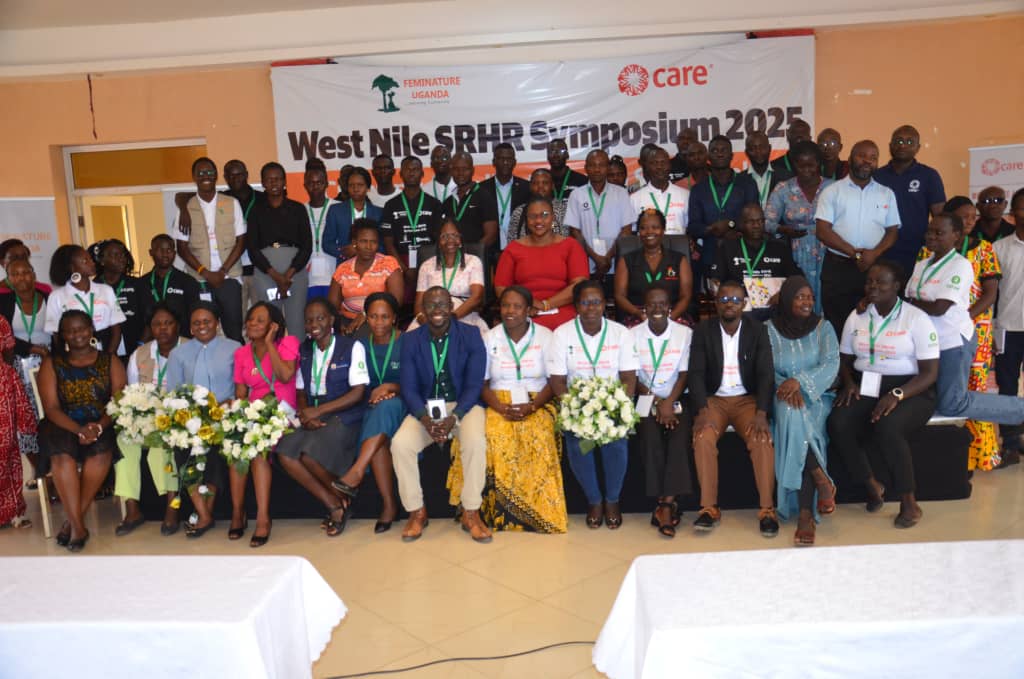Selfless Compassion Initiative (SCI) Amplifies SRHR Issues at the West Nile SRHR Symposium 2025
In a landmark event aimed at addressing the critical intersection of gender equality, climate change, and sexual reproductive health rights (SRHR), the Selfless Compassion Initiative (SCI) played a pivotal role as a key partner at the West Nile SRHR Symposium 2025.
Organized by Feminature Uganda under the Women’s Voice and Leadership project, the symposium brought together 100 diverse stakeholders, including policymakers, climate experts, healthcare professionals, human rights advocates, and local leaders, to advocate for gender-responsive climate and SRHR policies in the West Nile Sub-region.
SCI, known for its unwavering commitment to promoting health and social justice, was instrumental in voicing concerns and amplifying SRHR issues during the symposium.
The organization highlighted the urgent need to integrate gender and SRHR considerations into local and national policies, particularly in the context of climate adaptation strategies.
SCI’s representatives emphasized the disproportionate impact of climate change on women and girls, who often face increased barriers to accessing essential SRHR services.
Key Contributions by SCI:
Advocacy for Inclusive Policies: SCI advocated for the inclusion of gender and SRHR considerations in both local and national policies. The organization stressed the importance of addressing climate-related barriers to SRHR services, such as disruptions to healthcare infrastructure, limited access to family planning, and the heightened risks of sexual and gender-based violence.
Localized Action Plans: SCI contributed to the development of a localized action plan and concrete policy recommendations aimed at tackling the SRHR challenges faced by women and girls in West Nile communities. These recommendations are expected to guide future interventions and ensure that SRHR services are more accessible and responsive to the needs of vulnerable populations.
Showcasing Innovative Solutions: SCI showcased innovative solutions and best practices for promoting gender equality in climate resilience efforts. By sharing successful case studies and evidence-based approaches, SCI demonstrated how integrating SRHR into climate action can lead to more sustainable and equitable outcomes.
Call to Action:

Participants Pause For A Group Photo After the Two Days Symposium
During the symposium, SCI stood up and delivered a powerful call to action, emphasizing that the time is now to prioritize SRHR in the face of climate change.
The organization urged all stakeholders to demand a sustainable future where SRHR and climate action are inextricably linked.
SCI’s message was clear: we must stand together to protect the health and rights of women and girls, ensuring that they are not left behind in the fight against climate change.
SCI also highlighted the importance of involving all stakeholders in this critical drive. The organization called for information dissemination to start at the family level, ensuring that everyone is aware of the interconnected issues of SRHR and climate change. By fostering a community-wide understanding, SCI believes that more effective and inclusive solutions can be developed.
As a key implementing partner, SCI emphasized the need for practical, workable, and productive approaches to addressing SRHR issues. The organization urged stakeholders to move beyond rhetoric and take concrete actions that yield tangible results.
SCI’s commitment to being practical and productive was evident in their contributions to the symposium’s action plan, which included actionable steps for improving SRHR services and integrating them into climate resilience strategies.
The symposium’s outcomes align closely with SCI’s mission and objectives. Key expected outcomes include:
Integration of Gender Equality and SRHR: Gender equality and SRHR considerations are expected to be consistently integrated into national and local climate policies, planning, and funding mechanisms.
Improved Access to SRHR Services: Communities within West Nile are anticipated to experience improved access to sexual reproductive health services, including maternal health, family planning, and gender-based violence support.
Lasting Collaborations: The symposium fostered lasting collaborations between Feminature Uganda, SCI, and other climate change, gender equality, and SRHR organizations. These partnerships are expected to enhance the collective impact of future initiatives.
Increased Investment: There is a projected long-term increase in national and international investment in programs that focus on the intersection of gender equality, climate change, and SRHR, thanks in part to the advocacy efforts of SCI and its partners.
The West Nile SRHR Symposium 2025 marked a significant step forward in addressing the intertwined challenges of gender inequality, climate change, and SRHR.
SCI’s active participation and advocacy efforts were crucial in amplifying the voices of marginalized communities and ensuring that SRHR issues remain at the forefront of climate action discussions.
As the world moves towards achieving the Sustainable Development Goals (SDGs), particularly SDG 5 (Gender Equality) and SDG 13 (Climate Action), the contributions of organizations like SCI will be vital in creating a more just and equitable future for all.
SCI’s call to action resonates strongly: the time is now to prioritize SRHR in the face of climate change and demand a sustainable future for all.


